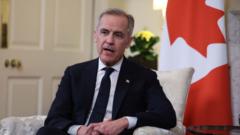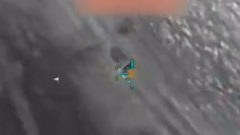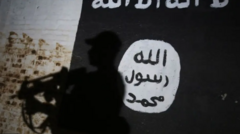The recent stabbing in Villach, Austria, which resulted in the death of a 14-year-old boy and injuries to five others, has been officially labeled an Islamist attack by the country's Interior Minister Gerhard Karner. The incident occurred on Saturday when a 23-year-old Syrian asylum seeker was detained at the scene. Karner emphasized that the attack had connections to the Islamic State group, stating that the attacker had reportedly become radicalized online in a short period of time. The individual was in possession of a temporary residence permit and awaiting a decision on his asylum application.
Austria Stabbing Incident Classified as Islamist Attack by Officials

Austria Stabbing Incident Classified as Islamist Attack by Officials
A tragic stabbing incident in Austria has been attributed to Islamist motives, revealing underlying tensions within the nation regarding asylum laws.
During a news conference, Karner highlighted the urgent need for authorities to address the implications of online radicalization, saying, "This was an Islamist attack with IS links by an attacker who, according to the investigations so far, was obviously radicalised online." As of Saturday evening, two of the victims remained in serious condition. A local delivery worker, also a Syrian man, played a crucial role in intervening and preventing further injuries by disrupting the assailant's attack.
This tragic event has sparked renewed debate concerning Austria's asylum policies, in the wake of a recent election that saw the far-right Freedom Party emerge as a dominant political force. Although the Freedom Party did not manage to form a coalition government, its leader, Herbert Kickl, capitalized on the unfortunate incident to advocate for stricter asylum controls, insisting that the country needs a "rigorous crackdown on asylum." The political landscape remains uncertain as President Alexander Van der Bellen contemplates options for government formation, amidst the existing pressures to address public safety and national security concerns.
This tragic event has sparked renewed debate concerning Austria's asylum policies, in the wake of a recent election that saw the far-right Freedom Party emerge as a dominant political force. Although the Freedom Party did not manage to form a coalition government, its leader, Herbert Kickl, capitalized on the unfortunate incident to advocate for stricter asylum controls, insisting that the country needs a "rigorous crackdown on asylum." The political landscape remains uncertain as President Alexander Van der Bellen contemplates options for government formation, amidst the existing pressures to address public safety and national security concerns.





















